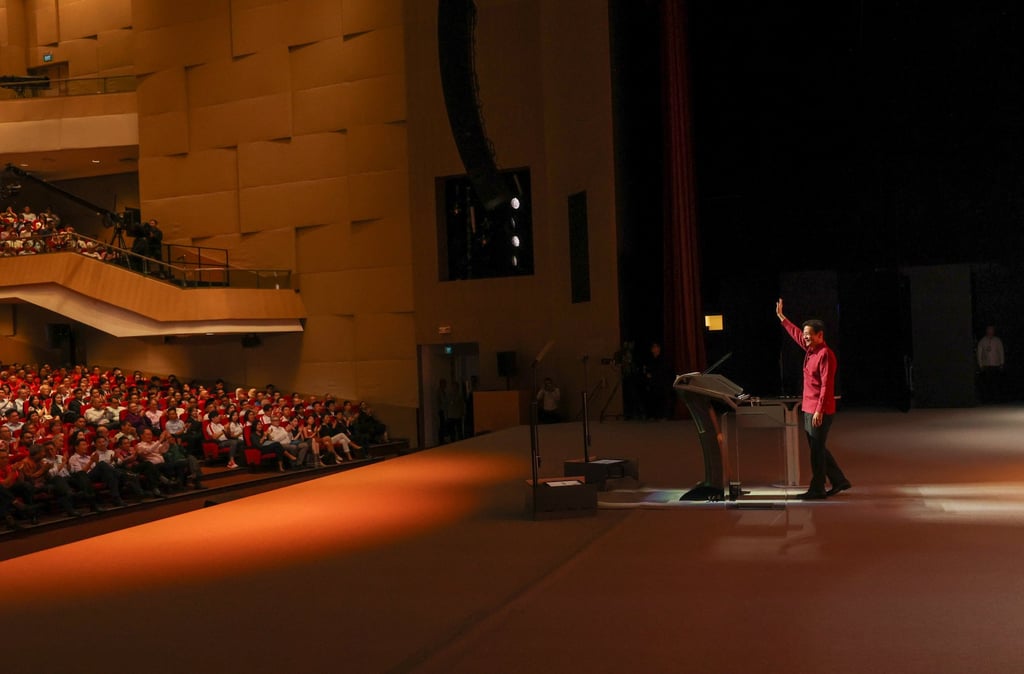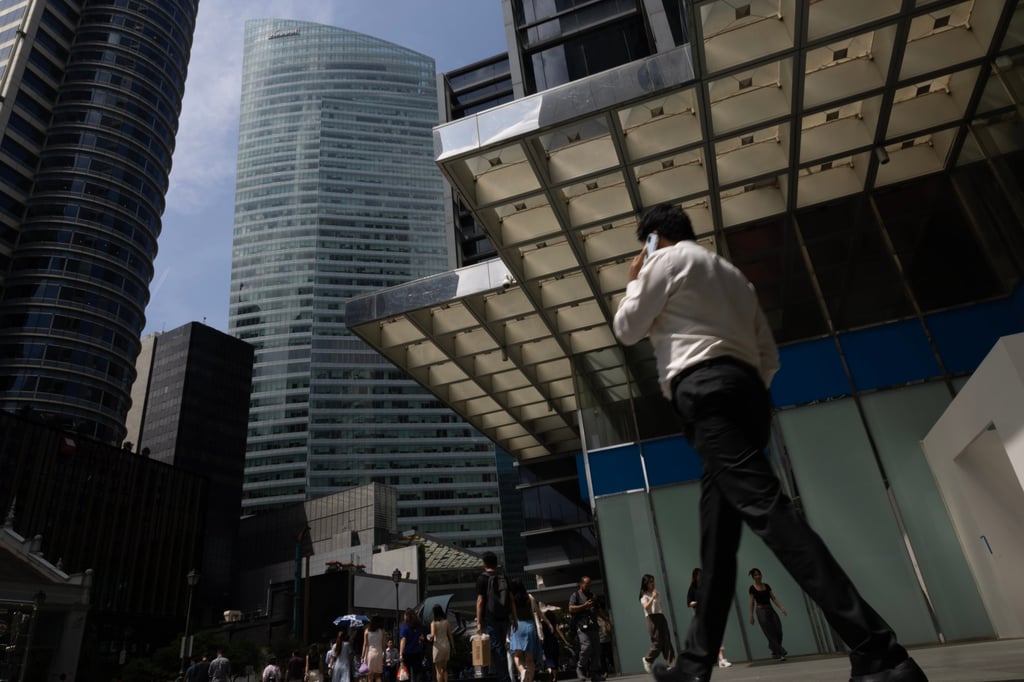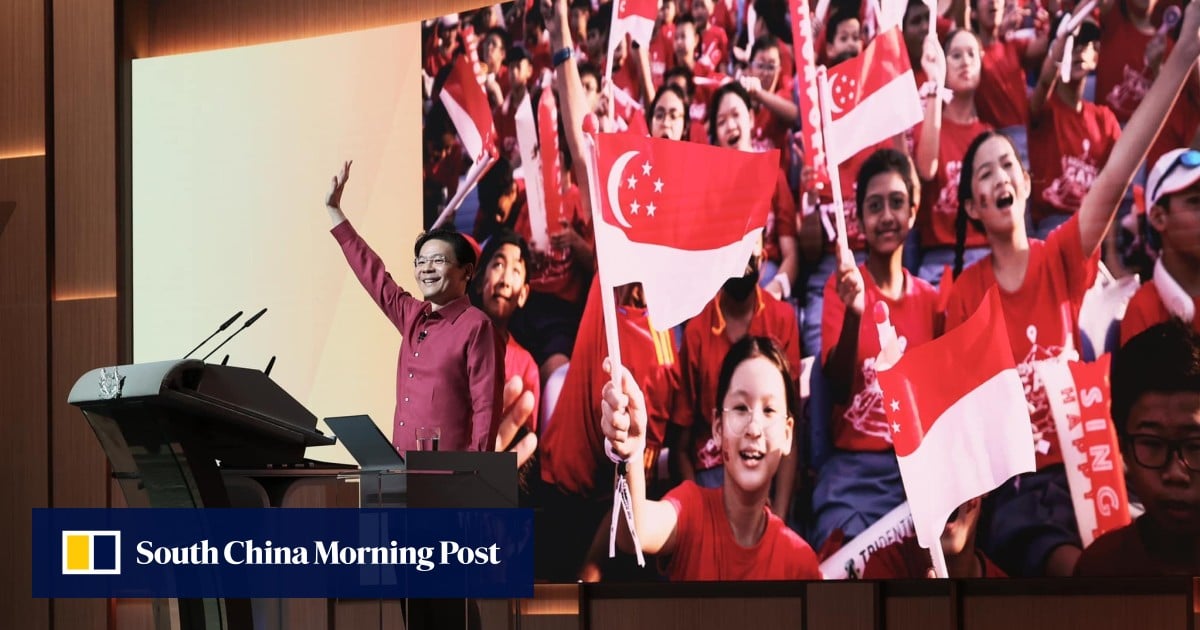While these policies will come with a hefty price tag, Singapore is likely to be able to foot the bill with its sustainable budget model, analysts say.

During Sunday’s rally, Wong addressed Singapore in Malay, Mandarin and English, in one of the city state’s key political speeches and the first major one he has given since his swearing-in speech in May. Wong took over the reins from Lee Hsien Loong, the son of founding prime minister Lee Kuan Yew.
Wong spoke at length about his personal life, including difficulties adjusting to his kindergarten as a child and attending neighbourhood schools.
Nydia Ngiow, managing director of Singapore at BowerGroupAsia, said Wong took “great effort to position himself as a ‘fellow Singaporean’ rather than the prime minister”.
“By sharing several personal anecdotes and taking a self-deprecating approach to his Malay and Mandarin skills, Wong’s campaign to make himself and his team more authentic and personable to win over younger voters was in full swing,” she added.
Former Nominated Member of Parliament Zulkifli Baharudin noted that Wong differed from his predecessor in the social circumstances of his upbringing. “Wong comes from a background that Lee Hsien Loong didn’t. When it comes to connecting to people and that emotional connection, his background enables him to connect with a wide range of Singaporeans.”
Zulkifli said while Wong was a “very good successor” to Lee with regard to continuity in their ideologies, he had hoped for more of a reset in terms of atmosphere and optics.
Wong, like Lee, spoke in the three languages, at the same venue and time, and structured his speech similarly, Zulkifli noted.
“The world is going through major changes so I expected a bit more of a transformative persona. It would have been a breath of fresh air which could have helped in the way the policies are received by some. However, because he’s seen as a continuum of the past, then those changes appear incremental instead of radically transformative,” he said.
Wong on Sunday said Singapore would implement financial support for those who lost their jobs, disbursing a maximum of S$6,000 (US$4,580) over a period of up to six months, and increase state-sponsored parental leave by 10 weeks.
Singaporeans aged 40 and above who take time off from work to study would also benefit from a new training allowance scheme next year, with each worker able to receive up to S$3,000 per month for 24 months.
Tan Wen Wei, an analyst covering Asia from the Economist Intelligence Unit, called the financial support for jobseekers a “substantial policy shift”.
“For many years, Singapore, which prides itself on meritocracy and self-reliance, deliberated on unemployment benefits with the concern that it will disincentivise the unemployed from getting a job,” Tan said.
The scheme should benefit workers whose jobs have become more vulnerable due to technological changes such as artificial intelligence and automation, Tan added.
Suan Teck Kin, head of research and executive director of global economics and markets research at UOB, noted that the rise of AI and the geopolitical climate will cause disruptions to the job market.
“All these things the government is putting in place now are investments in to reskill and upskill people. If they don’t invest in this now, the problems down the road will cost much more,” he said.
“Wong’s starting point is that social mobility is available for everyone, like it was for him, regardless of where you started and what setbacks you face.”

Suan noted, however, that it was likely there would be conditions attached to retrenched workers receiving the full amount of S$6,000.
Data from Singapore’s manpower ministry showed there were 14,590 retrenchments in 2023, more than double the 6,440 in 2022. There were 8,020 lay-offs in 2021. In the first quarter of this year, there were 3,030 retrenchments, while preliminary data suggested there were 3,100 in the second quarter.
Suan estimates that the scheme will cost close to S$200 million, assuming the retrenchments continue for two quarters, and each retrenched person receives the maximum of S$6,000 for the entire six months. This “is not going to be a tremendous stretch” on Singapore’s budget, Suan said.
DBS economist Chua Han Teng noted that the current budget indicated increased spending for Forward Singapore policy initiatives, totalling close to S$40 billion by the end of the decade. This is likely to have included funding the jobseeker support scheme and training allowances.
Forward Singapore was the nationwide feedback exercise spanning 16 months and involving discussions with some 200,000 people.
“These initiatives were likely factored into the government’s projections of rising spending until 2030. The government’s assessment that it can maintain a balanced budget over the coming years suggests that revenues are expected to be sufficient to fund these Forward Singapore policy initiatives,” Chua said.
Political observers noted that despite the efforts to widen the social safety net, Wong’s rally speech indicated an election was unlikely to happen this year, with the prime minister alluding that more details of the new policies would be announced later. Singapore’s next general election must be held by November 2025.
“A lot of the details have not been revealed and [are] likely going to be further developed as the government looks to prepare Budget 2025, so in that regard the general election is likely to take place only after then,” Ngiow said.

